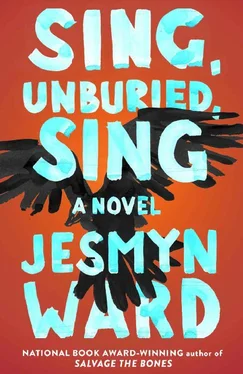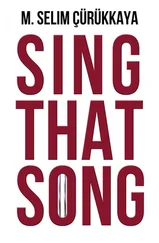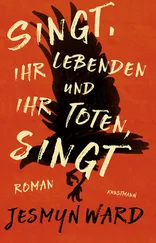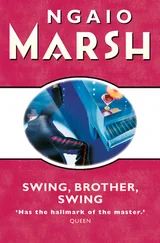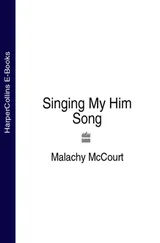“You need to sleep, sugar baby,” Michael says.
“I can’t. Not yet,” Leonie says.
“Just lay down with me.”
“I got something to do.”
“Really?”
“I’ll be back,” Leonie says. They kiss and I turn away. Something about the way Michael grips the back of her neck and Leonie palms his face seems desperate. So desperate and needy it demands privacy. He disappears into the house, and she walks down the side of the road. I cannot help but follow her. We walk single file under the overarching oaks, the cypress, the pines. The road is so old it’s almost been beat to gravel. Every so often, there is a house, silent and shut: in some, people speak in low voices, brew coffee, cook eggs. Rabbits and horses and goats graze for their morning feed: some of the horses come to the lips of their yards, raise their heads above their fences, and Leonie brushes their wet noses with her palm as she walks past. The houses come a little closer together. Leonie crosses the street and I see it: a graveyard. The headstones are half-ovals dug into the earth. Some have pictures on them, pictures of the dead once living. She stops in front of a grave nearer the front of the cemetery, where the newly dead are buried, and as she sinks to her knees in front of it, I see the boy I saw over Leonie’s shoulder this morning, but now he is etched into marble, and under the picture of his face, a name: Given Beau Stone. Leonie pulls a cigarette from her pocket and lights it. The smell of it is soot and ash.
“You ain’t never here.”
Birds are awaking in the trees.
“Would you do it, Given?”
They rustle and turn.
“She’s giving up.”
They chirp and alight.
“Would you?”
The birds swoop over our heads. They chatter one to the other.
“Would you give her what she wants?”
Leonie is crying now. She ignores the tears, lets them fall from the blade of her chin to her chest. When they freckle the skin of her collarbone, only then does she wipe them off.
“Maybe I’m too selfish.”
A small gray bird lands at the edge of the plot. It needles the earth, twice, feeling for breakfast. Leonie sighs, and it catches and bubbles into a laugh.
“Of course you won’t come.”
She bends and picks up a stone embedded in the dirt above Given’s grave, and she untucks her shirt, holds the hem, and puts the rock into the pocket made by the hanging material. She stands and talks to the air, and the bird hops and flitters away.
“What did I expect?”
Leonie wanders among the headstones, bending and collecting rocks from all the graves, from those just beginning to gather on raw earth, to those at the center and back of the graveyard, where the stones are wind- and water-worn, the names shallow etchings. The birds wheel up in a great flock in the sky, away to find richer earth. When Leonie walks home, the basket made by the front of her shirt is heavy with rocks, and she cries. The long road is quiet. Her tears darken the stone. They are still wet when she walks into the house, past Jojo and Riv and Kayla, still asleep in the living room, into her mother’s room. The smell in that room is all salt: ocean and blood. She kneels and lets them tumble out and onto the floor, looks at the saltwater woman, who has startled awake, and says:
“Okay.”
The tears and the ocean and the blood could burn a hole through the nose. The saltwater woman, the woman Leonie crawls toward over the rocks as she says, Mama, Mama , looks at Leonie with so much understanding and forgiveness and love that I hear the song again; I know that singing. I have heard it from the golden place across the waters. A great mouth opens in me and wails; I am an empty stomach.
The scaly bird lands on the windowsill and caws.
Last night, Richie crawled under the house and sang. I listened to it rise up through the floor, and I couldn’t sleep. Pop turned his back to us as he slept and coughed, over and over again. Kayla woke to whimpering every half hour, and I shushed her over the sound of the singing. We all slept late, but Pop has risen by the time I get up from the sofa. Kayla throws her arm over where I slept, and I pull the sheet over her. It’s almost noon when I walk out to the yard, to see the boy crouched in the tree outside Mam’s window. Somewhere out in the back, I hear Pop’s axe swish and thud.
“Come on,” I whisper.
I don’t look up at the tree when I say it, don’t look at the boy inching down, dropping and making no noise, raising no dust. If he was a real boy, the bark would come off in little papery flakes, fall like dry rain. But it doesn’t. He stands next to me, curved at the shoulders. He knows I’m talking to him. I lead him across the sun-washed yard and back into the shadows of the woods, where Pop is. A sound like hammering pops and rings in the silence. And again. Pop is beating something. I mean to walk like him: head up, shoulders straight, back a plank, but I find my head down, back curled. All of me drooping. Whenever Pop done told me his and Richie’s story, he talked in circles. Telling me the beginning over and over again. Telling me the middle over and over again. Circling the end like a big black buzzard angles around dead animals, possums or armadillos or wild pigs or hit deer, bloating and turning sour in the Mississippi heat.
Pop’s banging apart one of the old pens: hitting a corner of it with a sledgehammer until it buckles and folds, already half buried in the dirt. I stop, and Richie walks two steps more and stops. I can’t decide whether he is eating the sun or shrugging it off; either way, it’s like his shadow is laid over his skin, a dark mask from head to toe, and it walks with him. His hair is the longest I’ve ever seen it, and it stands up from his head like parasitic moss. Pop swings the hammer down and it cracks, the splinters turned to shards. His sweat is a glaze.
“Termites got in it. Eating it hollow,” Pop says. “Won’t keep nothing in and nothing out once they done with it.”
“You need help?” I ask.
“Kick these boards together,” Pop says.
He swings the sledgehammer again, splinters the wood at the joints. I kick the logs to herd them to a pile: where my foot hits, dust rises. Termites spin and flutter through the air, swarming. Their white wings flashing. Pop swings again. Grunts.
“Pop?”
“Yeah.”
“You never told me the end to that story.”
“What story?”
“About that boy, Richie.”
The hammer hits the dirt. Pop never misses. He sniffs and swings the sledgehammer like a golf club, testing its weight. Feeling the swing. A termite lands on my cheek and I swat it off, try not to frown, to keep my face smooth as Pop’s.
“What’s the last piece I told you?”
“You said he was sick. He’d just got whipped and he was hot and throwing up. You said he said he wanted to go home.”
Richie stands untouched by the termites. They waft away from him on an invisible wind. Find us , they say. I brush them away with my whole hand, but Pop flinches and flicks them with two fingers.
“That’s what I said,” Richie says, so low his voice could be the brush of my hand across my face, Pop’s finger along his eyebrow.
Pop nods.
“He tried to escape. Well, naw, he ain’t try. He did it.”
“He broke out?”
Pop swings. The wood cracks and crumbles.
“Yeah,” Pop says. He kicks at the wood, but there’s no force in it.
“So he went home?”
Pop shakes his head. Looks at me like he’s trying to figure out how tall I am, how big my hands, how long my feet. I can wear his shoes now: sometimes when he sends me on errands when it’s raining outside, I put on the boots he keeps just inside the back door at the bottom of the pantry. I look at him and raise my eyebrows. Tell him without saying it: I can hear this. I can listen.
Читать дальше
